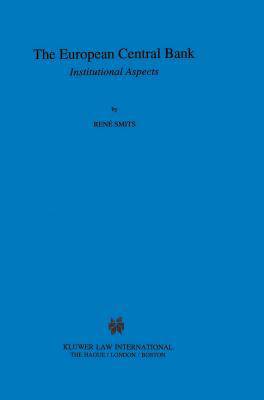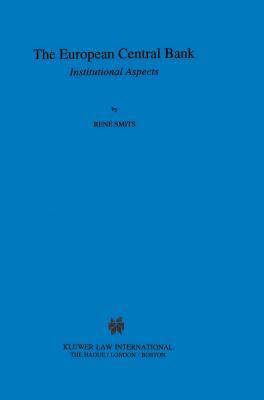
- Afhalen na 1 uur in een winkel met voorraad
- Gratis thuislevering in België vanaf € 30
- Ruim aanbod met 7 miljoen producten
- Afhalen na 1 uur in een winkel met voorraad
- Gratis thuislevering in België vanaf € 30
- Ruim aanbod met 7 miljoen producten
Zoeken
€ 956,95
+ 1913 punten
Omschrijving
The impending establishment of the European Central Bank (ECB) brings a dramatic transition: the introduction of a single European Community (EC) currency. The European Central Bank describes and analyses, from the perspective of the General Counsel of the Dutch Central Bank, the objectives and tasks entrusted to the ECB and the instruments with which the ECB has been endowed in order to carry out its responsibilities. In the context of this discussion of the institutional features of the ECB, the author: describes the structure of the European System of Central Banks (ESCB), of which the ECB is the nucleus; emphasises how the future European monetary authority is firmly rooted in the legal framework of European Community law; focuses on the institutional arrangements set out in the Treaty establishing the European Community (EC Treaty) and their effect on ECB practical functions; analyses the consequences of a monetary split between members of the monetary union and States remaining outside; and proposes solutions to the difficulties which such a division may entail for the functioning of the European Community. The structuring of EC monetary authority as a part of a community based on respect for the law forms a constant theme throughout The European Central Bank. This work's critical, in-depth analysis; its thought provoking conclusions and summaries of problematic issues; and its clear, grounded structure all make it a particularly useful, scholarly examination of an important development in European and international law.
Specificaties
Betrokkenen
- Auteur(s):
- Uitgeverij:
Inhoud
- Aantal bladzijden:
- 658
- Taal:
- Engels
- Reeks:
Eigenschappen
- Productcode (EAN):
- 9789041106865
- Verschijningsdatum:
- 1/03/1997
- Uitvoering:
- Hardcover
- Formaat:
- Genaaid
- Afmetingen:
- 156 mm x 234 mm
- Gewicht:
- 1025 g

Alleen bij Standaard Boekhandel
+ 1913 punten op je klantenkaart van Standaard Boekhandel
Beoordelingen
We publiceren alleen reviews die voldoen aan de voorwaarden voor reviews. Bekijk onze voorwaarden voor reviews.








